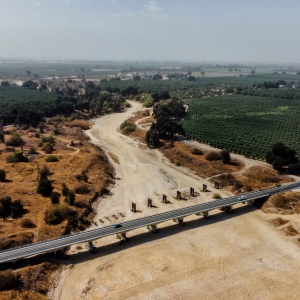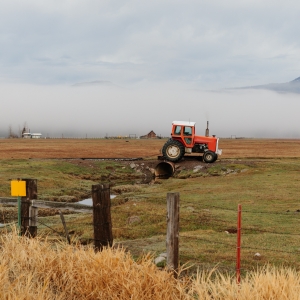The Stream, November 23, 2021: U.S. Officials Turn To Decades-Old Technology To Mitigate Water Crisis
YOUR GLOBAL RUNDOWN
- The oil industry is threatening Indigenous communities in Alberta, Canada by destroying wetlands and rerouting waterways.
- Dam levels in Eastern Cape, South Africa, fall below 50 percent.
- Cloud seeding is becoming more popular throughout the American West as water scarcity worsens.
- Heavy rains cause devastating flooding across South India.
Covid-19 vaccine initiatives take a backseat in South Sudan as flooding, hunger, and disease plague the nation.
“We need medicines and nets. Now all we can think about is how to get out of this flooding.” – James Kuir Bior, the village leader in Pawel, South Sudan. Coronavirus vaccine initiatives have taken a backseat in South Sudan as residents continue to suffer through unprecedented flooding. Heavy rainfall is becoming more frequent across South Sudan as climate change worsens. Many South Sudanese citizens, plagued with hunger and disease, say receiving the inoculation is not a priority. For many others, flood waters have completely cut entire villages off from the rest of the country, making traveling to receive the vaccine impossible.
IN RECENT WATER NEWS
In Case You Missed It:
Where Is The Water Going? – Small farmers struggle as ag titans wheel profit. This piece is part of a collaboration that includes the Institute for Nonprofit News (INN), California Health Report, Center for Collaborative Investigative Journalism, Circle of Blue, Colorado Public Radio, Columbia Insight, The Counter, High Country News, New Mexico In Depth and SJV Water.
HotSpots H2O: Unusually Powerful ‘Atmospheric River’ Pummels British Columbia and Pacific Northwest – This summer’s heat wave and wildfires weakened the landscape’s ability to absorb rainfall, further contributing to the destruction.
What’s Up With Water—November 22, 2021 – This week’s episode covers flooding in western Canada, drought and hunger in the Horn of Africa, water agreements in the Middle East, and drinking water rules in Pennsylvania.
The Oil Industry Is Threatening Indigenous Communities In Alberta, Activists Say
Oil companies have invaded Indigenous communities in Alberta, Canada, destroying wetlands and rerouting waterways, according to Inside Climate News. Oil giants like ExxonMobil and Suncor have turned Alberta’s tar sands into one of the world’s largest industrial developments—almost completely degrading the environment they have built within. Giant waste ponds now contaminate groundwater with heavy metals, and processing plants constantly leak nitrogen and sulfur oxides into the air. Indigenous say the ecological impacts have been so damaging the oil industry has “challenged their very existence.”
TODAY’S TOP WATER STORIES, TOLD IN NUMBERS
BELOW 50 PERCENT
Dam levels in Eastern Cape, South Africa have dropped below 50 percent as drought continues to plague the nation. The Daily Maverick reports that many small South African communities have resorted to buying water or drinking water directly from rivers, which is often polluted.
1 MILLION ACRE-FEET
Idaho Power, a private utility in southern Idaho and eastern Oregon, is ramping up its use of cloud seeding, a technology that releases silver iodide plumes to create snowfall on mountains. In the spring, that snow will melt, replenishing supplies for drinking water, irrigation, and hydroelectricity. Right now, the program is estimated to produce 1 million acre-feet of additional water annually, but Idaho recently passed a bill to expand the effort. Other states across the region are considering similar programs as water scarcity worsens due to drought.
ON THE RADAR
Heavy rain has cause intense flooding across parts of South India, and meteorologists predict more rain over the next few days. The state of Andhra Pradesh has received the brunt of the storms, which have reportedly caused 34 deaths so far.
Jane is a Communications Associate for Circle of Blue. She writes The Stream and has covered domestic and international water issues for Circle of Blue. She is a recent graduate of Grand Valley State University, where she studied Multimedia Journalism and Women, Gender and Sexuality Studies. During her time at Grand Valley, she was the host of the Community Service Learning Center podcast Be the Change. Currently based in Grand Rapids, Michigan, Jane enjoys listening to music, reading and spending time outdoors.






Leave a Reply
Want to join the discussion?Feel free to contribute!